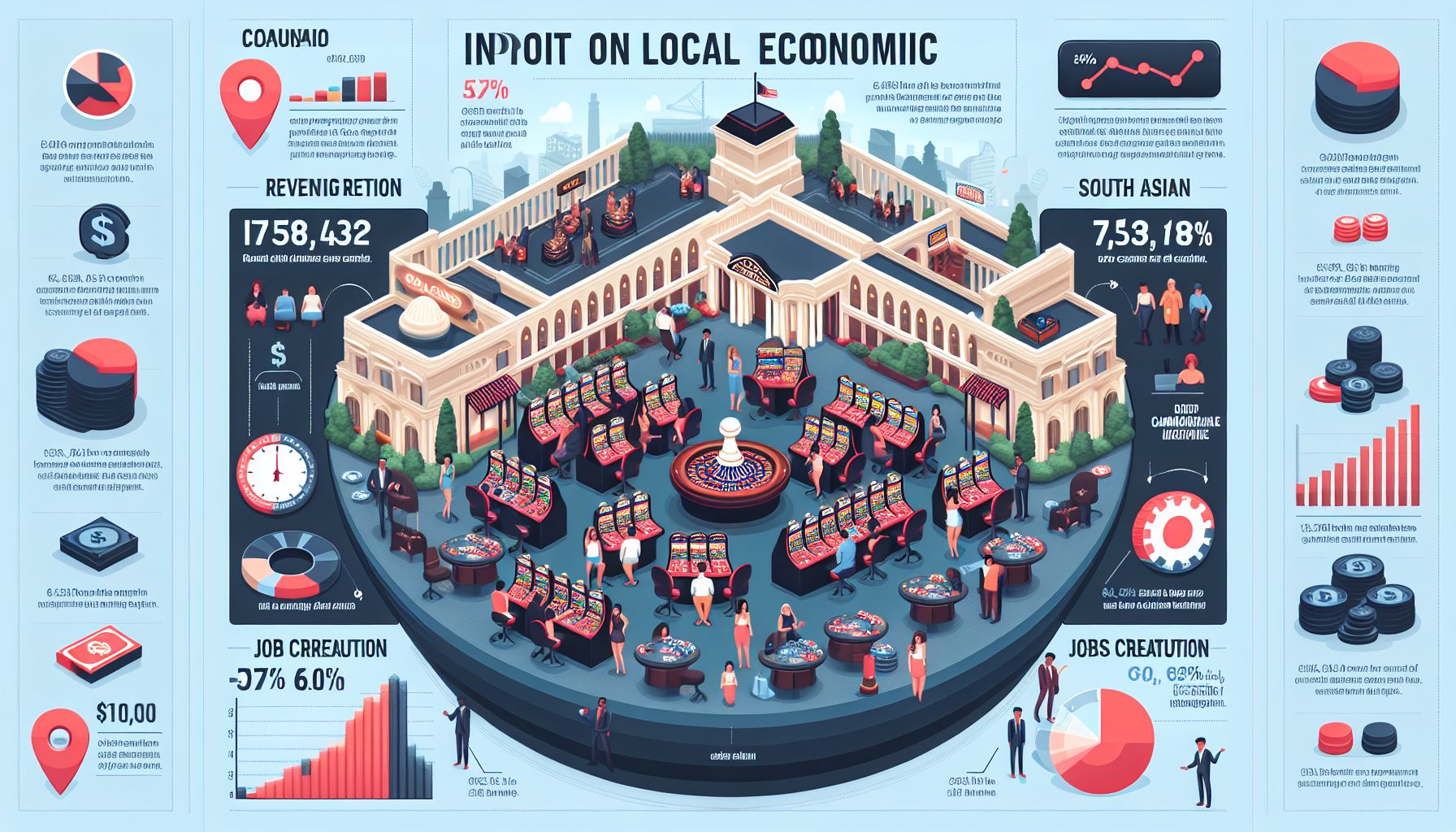When we think of casinos, we often picture bright lights, slot machines, and the excitement of winning big. But beyond the glitz and glamour, casinos play a significant role in the local economies where they are located. From job creation to increased tourism, the impact of casinos on these economies cannot be ignored. In this blog post, we will take a closer look at the role of casinos in local economies and examine the benefits and potential drawbacks they bring.
Introduction to Casinos in Local Economies
The history of casinos dates back centuries, with the first known gambling house opening in Venice, Italy, in 1638. Today, casinos can be found all over the world, from Las Vegas to Macau, and generate billions of dollars in revenue each year. These establishments offer various forms of gambling, including slot machines, blackjack, poker, and roulette. While the popularity of casinos may be controversial, it is undeniable that they have a significant impact on the local economies where they operate.
Job Creation
One of the most significant benefits of casinos in local economies is the creation of jobs. Casinos require a large workforce to operate, from dealers and servers to administrative staff and security personnel. According to the American Gaming Association, the casino industry supports over 1.8 million jobs in the United States alone. Not only do these jobs provide employment opportunities for locals, but they also offer a range of positions from entry-level to management, allowing for upward mobility. In areas with high unemployment rates, casinos can be an essential source of job growth and economic stability.
Increased Tourism and Revenue
Another significant contribution of casinos to local economies is the influx of tourism and revenue they bring. Casinos often attract tourists from all over the world, drawn in by the promise of exciting entertainment and the chance to win big. This tourism, in turn, creates a demand for other local businesses, such as restaurants, hotels, and retail stores. With more tourists, these businesses can thrive, providing a boost to the local economy.
Furthermore, casinos bring in significant revenue for both the city and state governments. Most states impose high taxes and licensing fees on casinos, which can generate millions of dollars in revenue each year. This revenue can then be used to fund public services, such as education, infrastructure, and healthcare, benefiting the entire community.
Challenges and Concerns
While the economic benefits of casinos may seem enticing, there are also challenges and concerns to consider. One of the main concerns is the potential for increased problem gambling. With easy access to gambling, some individuals may develop an addiction, leading to financial and personal issues. However, many argue that with proper regulations and measures in place, the industry can mitigate these concerns.
Another issue is the impact on other businesses in the area. Some argue that casinos can take away business from other local establishments, particularly small businesses. However, supporters of casinos argue that the increased tourism and revenue can ultimately benefit these businesses in the long run.
Another concern is the potential for crime and increased security risk. With large amounts of cash and people in one location, casinos may be a target for criminals. However, casinos invest heavily in security measures, including cameras, trained staff, and technology, to protect their guests and their assets.
Conclusion
In conclusion, casinos play a vital role in local economies and bring many benefits, such as job creation and increased revenue. However, they also pose challenges and concerns that need to be addressed. As with any industry, it is crucial for governments and regulators to have proper regulations and policies in place to ensure responsible and safe operations. By considering both the benefits and potential drawbacks, we can have a better understanding of the role of casinos in local economies and the impact they have on the communities they operate in.
In most cases, casinos can bring much-needed economic growth and stability to areas that are struggling. However, it is crucial to strike a balance and ensure that all stakeholders are taken into account, including local businesses and the community. With responsible regulations and careful planning, casinos can continue to be a significant contributor to the economies of many cities and regions around the world.



